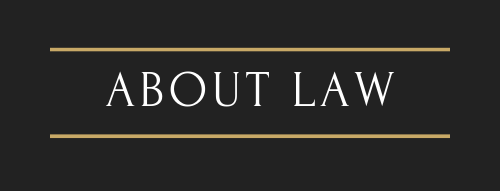Personal Injury Lawyer
 What is an estate? An estate is the sum of one’s legal interest in property that exists at one’s death. Simply put, an estate is all the money and property owned by a person at the time they die. As a personal injury lawyer from Eglet Adams can explain, part of an estate can also include any type of personal injury settlement or jury award the person may have received prior to their death.
What is an estate? An estate is the sum of one’s legal interest in property that exists at one’s death. Simply put, an estate is all the money and property owned by a person at the time they die. As a personal injury lawyer from Eglet Adams can explain, part of an estate can also include any type of personal injury settlement or jury award the person may have received prior to their death.
All the money and property owned by that person is typically laid out and listed in a will. A will is a formal legal document that directs the disposition of the probate estate of the decedent. Having a will prepared before your passing is very important. If you have a will prepared before you die, it means you have died testate. If you have died without having a will prepared, you have died intestate. Dying testate or intestate has very different, and significant repercussions.
When a person passes away in testate, that means that the disposition of their will must go through probate, and they have what is called a probate estate. Probate is the court-monitored process of proving the validity of the decedent’s will, transferring property, and settling the affairs of the decedent. The court, in validating the will, must ensure that the will was in writing, is signed by the decedent, and that there are two credible individuals who witnessed the will. Transferring the property refers to changing the legal titles of the assets and property interests owned by the decedent. The person who receives the legal title to the assets is called a devisee.
Dying intestate is wholly separate from dying testate. While each state varies slightly, the disposition of the estate when a person passes without a will is generally similar. It’s important to note a few definitions prior. A heir is a person who will inherit some or all of the estate. A escheat is a person who dies intestate and without heirs. In common is a phrase used to describe an estate with two concurrent interests in the land. A collateral is a blood relative, such as an aunt, uncle, brother, sister, and the like. Normally, after the escheat passes away, the assets pass onto the spouse and children. If there is no spouse, children or other heirs, the estate passes to the state and is sold at auction.
When a person dies intestate, the estate is disposed of in line with state regulations. Often times, this results in later litigation regarding the disposition of those assets because surviving heirs and other collaterals will dispute how the state divvies up the assets. For example, a brother or sister may claim that they have an interest in a cabin that is stronger than that of the current spouse. Or, the collaterals may say that the decedent wrote in a letter ten years ago that the decedent promised to leave the cabin to said collateral after they passed away. The result is that the family and friends end up arguing over the estate and can ruin the relationships that they once cherished. As you can probably tell, it’s always better to have a will prepared.
